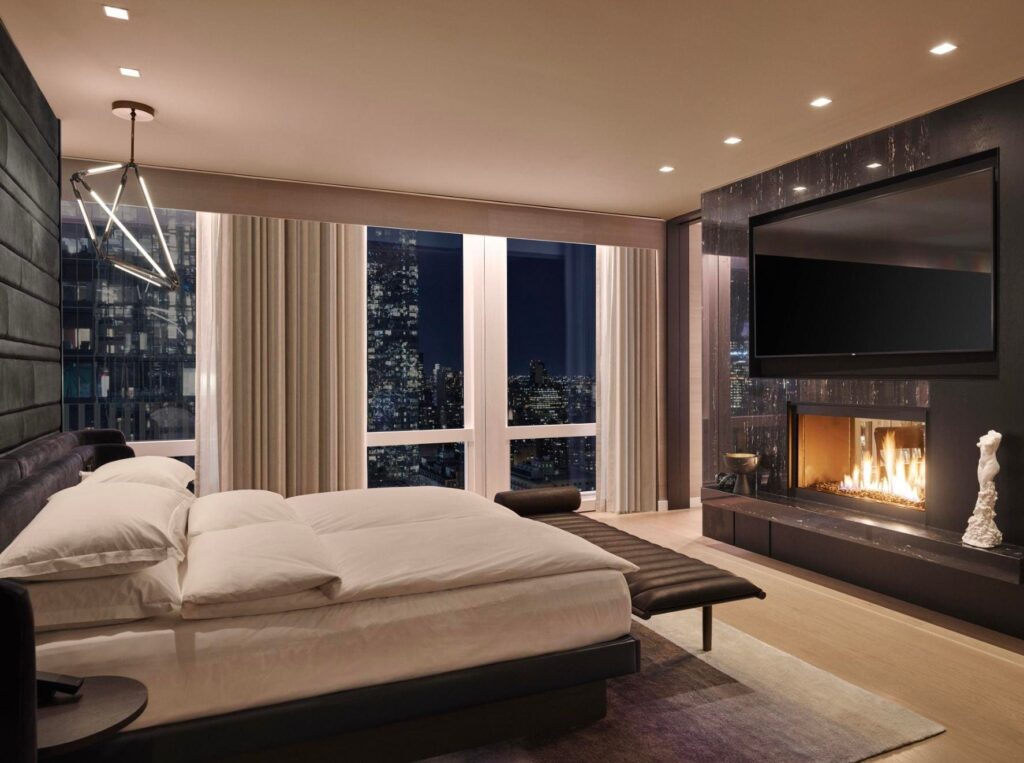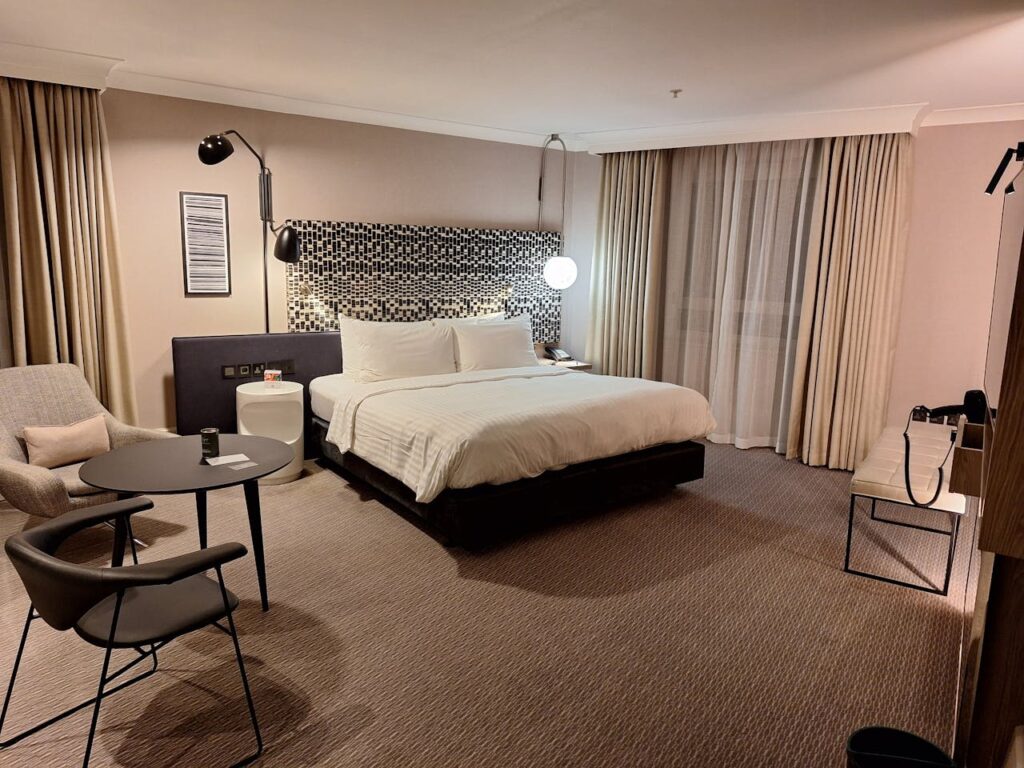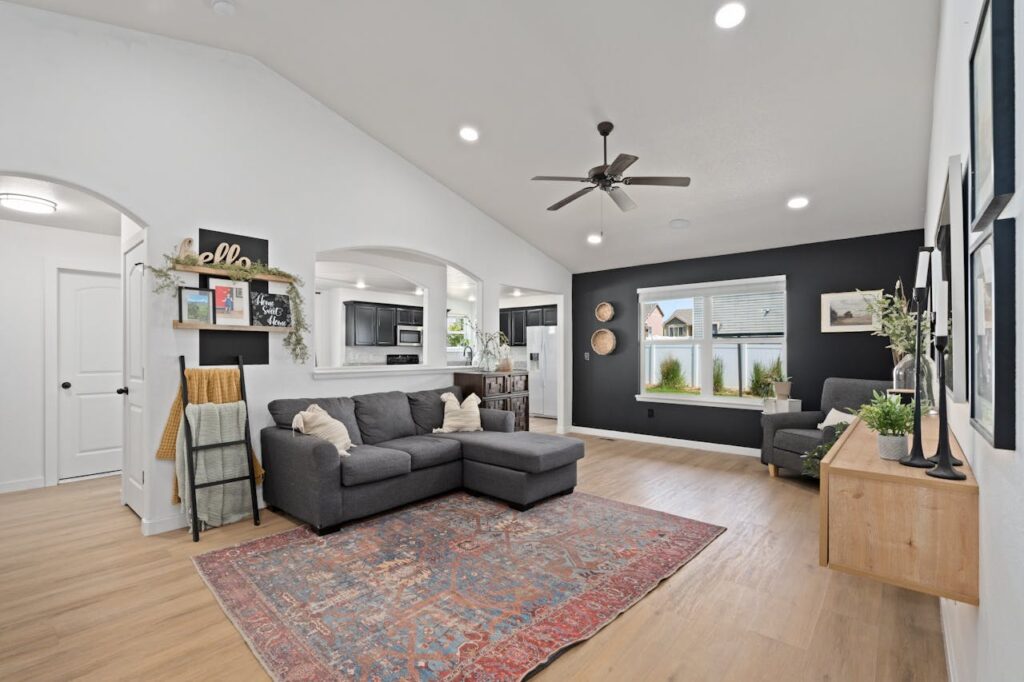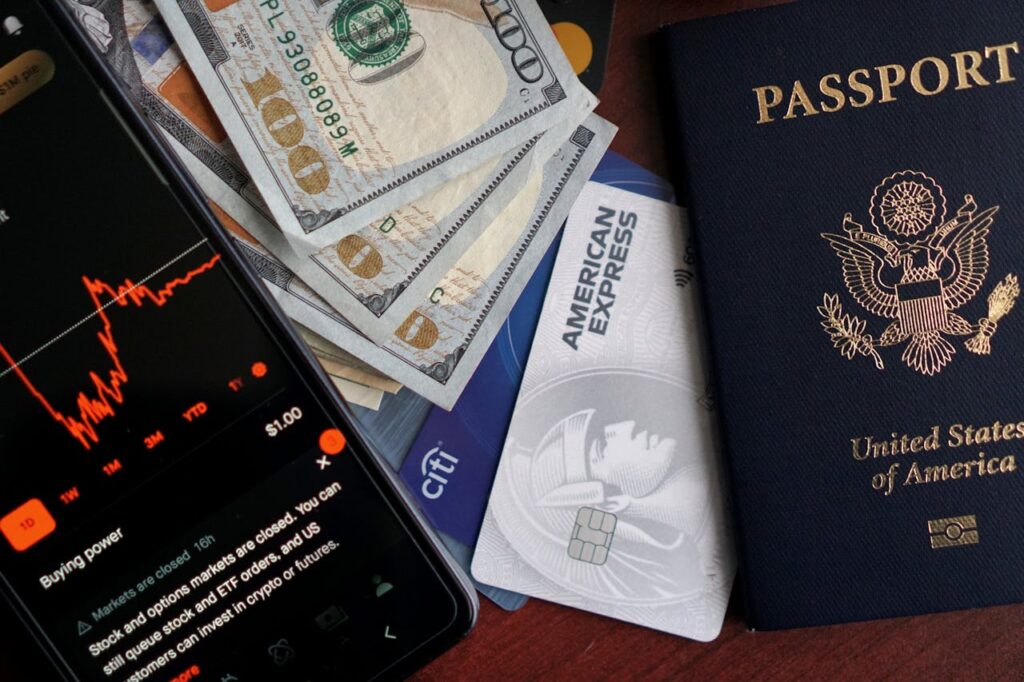VRBO vs Airbnb: The Ultimate Showdown – 7 Key Differences Every Traveler Must Know!
Planning your next getaway and trying to decide between VRBO and Airbnb? While both platforms offer vacation rentals, they differ in significant ways that can impact your travel experience. Understanding these key differences will help you choose the platform that best suits your specific needs, whether you’re planning a family vacation, a romantic weekend, or a business trip that requires more space than a standard hotel room.
Table of Contents
Introduction
Choosing the right vacation rental platform is crucial for both travelers and property owners. For travelers, it impacts the quality, cost, and overall experience of their stay. For property owners, it affects visibility, booking rates, and revenue. With numerous platforms available, selecting the right one ensures a seamless experience tailored to individual needs.
Two of the most popular vacation rental platforms are Airbnb and VRBO (Vacation Rentals By Owner). Airbnb, founded in 2008, is known for its diverse listings, ranging from shared rooms to entire homes, catering to a wide audience. VRBO, established in 1995, focuses primarily on whole-property rentals, making it a favorite for families and larger groups seeking privacy and space.
This comparison VRBO vs Airbnb will cover key aspects such as property types, fees, user experience, target audiences, and booking flexibility. By examining these factors, travelers and property owners can make informed decisions about which platform best suits their needs. Whether you’re planning a cozy getaway or managing a rental property, understanding the differences between Airbnb and VRBO is essential for maximizing satisfaction and success.
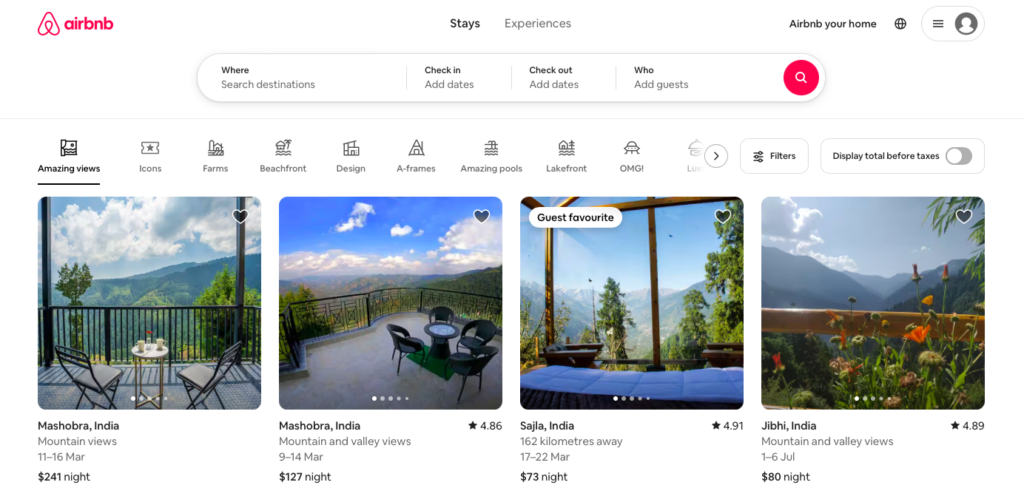
1. Booking Process & Ease of Use
Airbnb provides a seamless and flexible booking experience. Guests can choose between Instant Book, where reservations are confirmed immediately, and Request to Book, where hosts manually approve bookings. This flexibility makes it easier for travelers to find stays quickly. The platform also offers a wide range of accommodations, from shared spaces and private rooms to full homes and even boutique hotels. With an easy-to-use interface, advanced filters, and guest reviews, finding a suitable stay is straightforward.
VRBO, on the other hand, primarily focuses on entire-home rentals, making it ideal for families and groups. The search process is simple, with filters that allow users to refine their choices based on location, price, amenities, and more. However, many listings require owner approval before confirming bookings, which can slow down the reservation process. Unlike Airbnb, VRBO does not offer shared spaces, making it less appealing to solo travelers.
For those seeking a hassle-free booking experience with instant confirmation and more flexibility, Airbnb is the better option. However, for travelers prioritizing privacy and full-home rentals, VRBO is still a strong contender.

2. Pricing, Fees & Hidden Costs
When comparing Vrbo vs Airbnb, understanding the fee structure is essential for budget-conscious travelers. Both platforms operate with similar models but differ in how costs are presented and calculated.
Airbnb typically charges guests a service fee ranging from 5% to 15% of the booking subtotal. This variable rate often decreases for higher-priced bookings. Additionally, hosts may add cleaning fees, which can sometimes be surprisingly high. Airbnb also implements dynamic pricing, allowing hosts to automatically adjust rates based on demand, seasonality, and local events.
Vrbo, on the other hand, tends to offer more transparent pricing from the outset. They charge a service fee that generally ranges from 6% to 12% of the booking total. However, Vrbo specializes in entire home rentals, which may result in higher base prices compared to Airbnb’s diverse inventory that includes private rooms and shared spaces.
Both platforms collect local taxes, and both allow hosts to set their own security deposits and cleaning fees. Neither Vrbo vs Airbnb clearly dominates on pricing alone, as costs vary significantly by location and property type.
The winner? Airbnb often provides more budget options overall due to its wider range of accommodation types, but Vrbo might offer better value for groups and families seeking entire homes with transparent pricing.
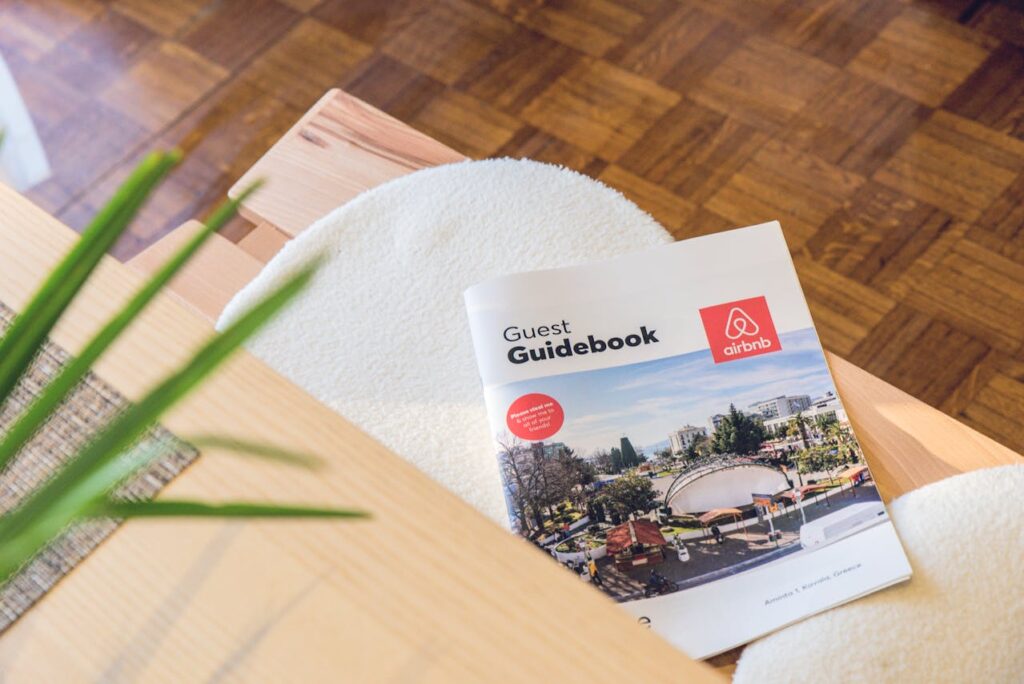
3. Cancellation Policies & Flexibility
When comparing Vrbo vs Airbnb, cancellation policies and flexibility are critical factors for travelers. Airbnb offers multiple standardized cancellation policies, including Flexible, Moderate, and Strict, allowing guests to choose listings that align with their comfort level. The Flexible policy, for instance, provides a full refund if canceled at least 24 hours before check-in, making it ideal for uncertain travel plans. Airbnb also introduced extreme circumstances exceptions, offering additional protection during unforeseen events.
On the other hand, VRBO allows property owners to set their own cancellation policies, leading to significant variations. While some listings may offer generous refunds, others might enforce stricter rules, such as no refunds for last-minute cancellations. This inconsistency can make it challenging for travelers to predict their options when plans change.
In the debate of Vrbo vs Airbnb, Airbnb emerges as the winner for cancellation flexibility. Its standardized policies provide clarity and consistency, catering to a broader range of traveler needs. VRBO’s owner-determined approach, while customizable, lacks uniformity and may limit options for guests seeking more lenient terms. For travelers prioritizing flexibility, Airbnb’s structured policies offer greater peace of mind.

4. Best for Family Vacations & Large Groups
When planning a family vacation or a trip with a large group, choosing the right platform can make all the difference. Vrbo vs Airbnb comes down to privacy, space, and family-friendly amenities.
Airbnb offers a diverse range of accommodations, from shared spaces and private rooms to full homes and even unique stays like treehouses, cabins, and villas. Families traveling with kids may appreciate Airbnb’s flexible options, including child-friendly homes with cribs, play areas, and kitchens. However, since Airbnb also features shared spaces, travelers need to carefully check listings to ensure they’re booking an entire place for privacy.
VRBO specializes in entire-home rentals, making it an excellent choice for families and large groups looking for privacy. The platform includes spacious vacation homes, condos, and beachfront villas that cater specifically to families. Many listings are pet-friendly, allowing travelers to bring their furry companions along. Additionally, VRBO’s properties often include family-friendly features like game rooms, pools, and large kitchens, making group travel more comfortable.
For families and large groups prioritizing space, privacy, and comfort, VRBO is the better choice. However, if you’re looking for unique stays or a mix of accommodation options, Airbnb still holds strong appeal.

5. Best for Solo Travelers & Budget Trips
Solo travelers have distinctly different experiences when comparing Vrbo vs Airbnb options, particularly when traveling on a budget. The platforms’ business models create a clear distinction in accessibility for individual adventurers.
Airbnb offers an extensive range of accommodation types perfectly suited for solo travelers. Options include private rooms in shared homes, studio apartments, and even hostel-style shared rooms. These alternatives typically cost significantly less than entire properties, making extended trips more affordable. Airbnb’s “Experiences” feature also provides solo travelers with opportunities to connect with locals and other travelers through guided activities, which can be particularly valuable when exploring new destinations alone.
In contrast, Vrbo specializes almost exclusively in entire property rentals. This focus creates limitations for budget-conscious solo travelers, as even the smallest Vrbo properties often exceed the price point of Airbnb’s room rentals. Without shared space options, Vrbo’s inventory typically starts at higher price points that may be impractical for individual travelers.
When evaluating Vrbo vs Airbnb for solo adventures, Airbnb emerges as the clear winner. Its diverse inventory, flexible booking options, social opportunities, and generally lower price points for individual accommodations make it the superior choice for those traveling alone on a budget. Solo travelers will find Airbnb’s platform specifically designed to accommodate their unique needs.

6. Best for Business Travelers & Long Stays
When evaluating Vrbo vs Airbnb for business travelers and long stays, both platforms offer unique advantages, but Airbnb stands out as the more tailored option. Airbnb’s “Airbnb for Work” program is specifically designed for professionals, featuring work-friendly stays with amenities like high-speed Wi-Fi, dedicated workspaces, and self-check-in. Additionally, Airbnb offers extended stay discounts for bookings of 28 days or more, making it a cost-effective choice for long-term business trips or relocations.
VRBO, while primarily focused on family vacations and group travel, also caters to corporate rentals and extended stays. Its whole-property listings are ideal for teams or professionals seeking privacy and space. However, VRBO lacks specialized features for business travelers, such as streamlined expense reporting or work-specific filters.
In the Vrbo vs Airbnb comparison, Airbnb is the clear winner for business travelers. Its dedicated “Airbnb for Work” program, combined with work-friendly amenities and extended stay discounts, provides a more comprehensive and convenient experience for professionals. While VRBO is suitable for longer stays, Airbnb’s targeted features and flexibility make it the better choice for those traveling for work.
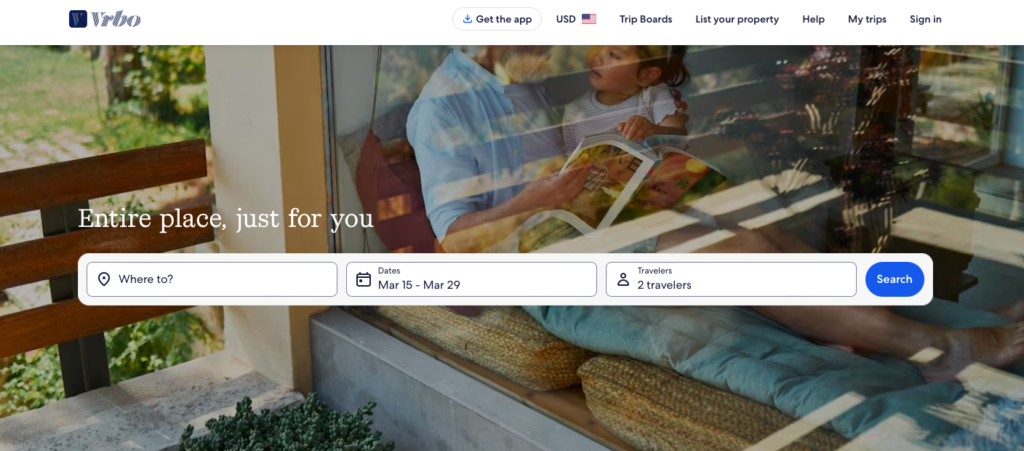
7. Safety, Trust & Customer Support
When booking a vacation rental, safety, trust, and reliable customer support are crucial factors. In the Vrbo vs Airbnb debate, both platforms offer security measures, but their approaches differ.
Airbnb prioritizes safety with a host verification system, ensuring that listings are legitimate. Payments are processed securely through the platform, reducing fraud risks. One of Airbnb’s biggest advantages is AirCover, which provides protection for both guests and hosts, covering issues like cancellations, property misrepresentation, and emergency rebooking. Additionally, Airbnb offers 24/7 customer support, making it easier for travelers to resolve issues quickly.
VRBO also takes guest security seriously, offering Book with Confidence Guarantee, which protects travelers from fraud, last-minute cancellations, and misrepresented listings. However, unlike Airbnb, VRBO relies more on owner-driven communication, meaning guests often need to deal directly with hosts for issue resolution. While VRBO has customer support, it may not be as responsive as Airbnb’s, especially in urgent situations.
For travelers who prioritize stronger protection policies, instant support, and secure transactions, Airbnb is the safer choice. However, VRBO still offers reliable protection, especially for those booking with well-rated hosts.
Final Verdict: Which Platform Should You Choose?
Airbnb stands out for solo travelers, urban adventurers, and those seeking unique accommodations or experiences. Its diverse inventory—ranging from shared rooms to luxury properties—offers options at virtually every price point. Budget-conscious travelers appreciate the platform’s flexibility, while experience-seekers benefit from local activities and one-of-a-kind stays like treehouses or converted railways cars.
Vrbo excels for family vacations, group getaways, and travelers prioritizing privacy. Its exclusive focus on entire home rentals means no shared spaces, making it particularly valuable for longer stays, multi-family trips, and special occasions. The platform typically features more family-friendly amenities like fully-equipped kitchens, multiple bedrooms, and outdoor spaces.
To maximize value on either platform:
- Book well in advance for peak seasons
- Compare total costs (including all fees) before deciding
- Consider properties slightly outside prime locations for better deals
- Check cancellation policies carefully before booking
- Read reviews thoroughly, paying special attention to recent feedback
- Message hosts with specific questions before booking
The Vrbo vs Airbnb debate has no universal winner. Success comes from matching the platform’s strengths to your specific travel needs while remaining attentive to the details that impact your overall experience.
Conclusion
When deciding between Vrbo vs Airbnb for your next trip, consider your specific needs and preferences. Airbnb is ideal for travelers seeking diverse lodging options, from shared spaces to entire homes, and those prioritizing flexibility, especially with its standardized cancellation policies and work-friendly features. It’s perfect for solo travelers, couples, and business professionals. On the other hand, VRBO excels in offering whole-property rentals, making it a top choice for families, large groups, and those planning extended vacations where privacy and space are paramount.
To make the best decision, evaluate factors like property type, group size, budget, and trip purpose. For business trips or flexible plans, Airbnb’s features and discounts may be more appealing. For family vacations or longer stays, VRBO’s focus on entire homes could be the better fit.
Ultimately, the Vrbo vs Airbnb debate comes down to your unique travel requirements. Take time to compare listings, read reviews, and explore the features each platform offers. By doing so, you’ll ensure a seamless and enjoyable experience tailored to your needs. Always weigh your options before booking to make the most of your vacation or business trip.
If you found this Vrbo vs Airbnb comparison helpful, don’t forget to like and share for more insights on travel, vacation rentals, and the best platforms for your next trip!
We’d love to hear from you! Which platform do you prefer—Vrbo vs Airbnb—for your travels, and why? Share your thoughts in the comments below!
Explore More Tips and Guides
If you’re looking for more hospitality & travel inspiration, check out our other posts:

